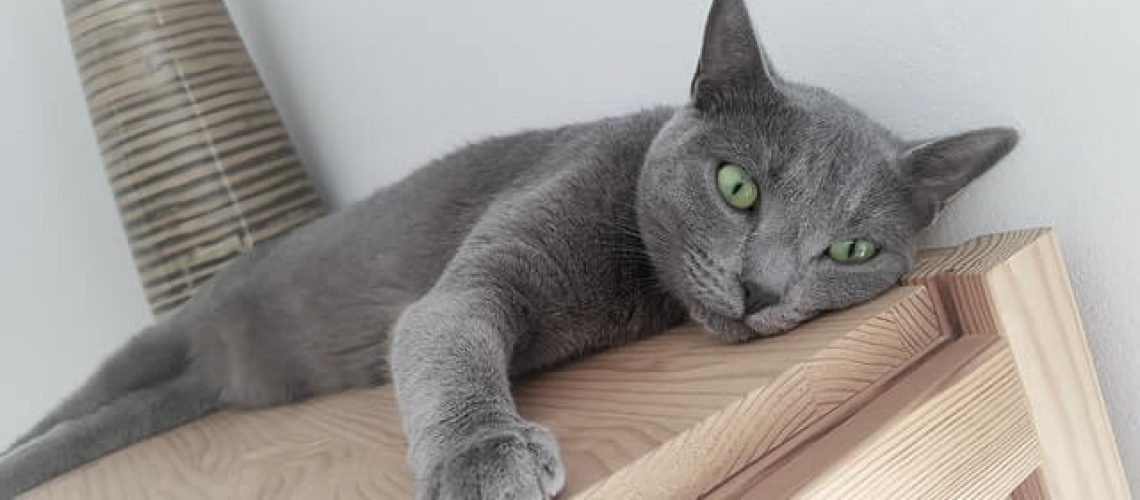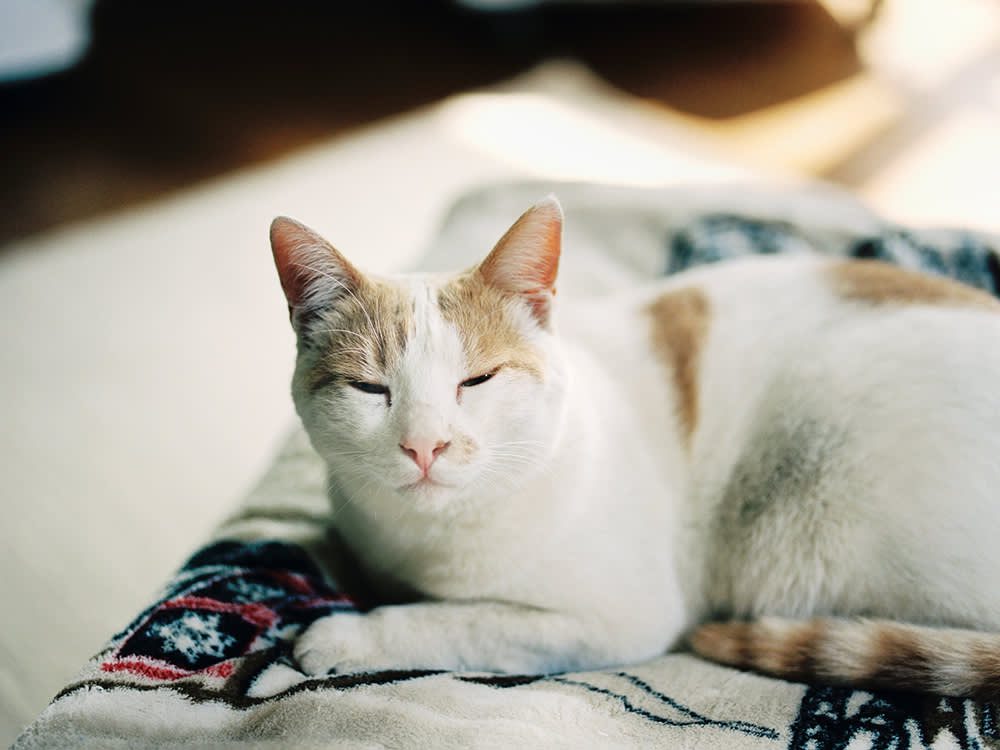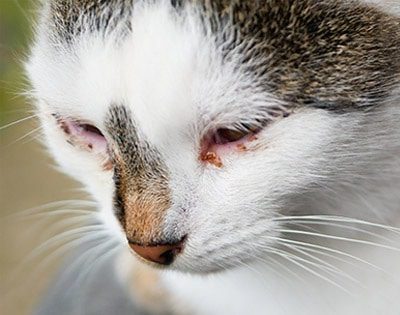Are you a proud cat owner who has noticed your cat breathing Fast? If so, you're in the right place! Understanding why your kitty is breathing fast can provide invaluable insights into their health and well-being.
By delving into this subject, you'll gain the knowledge necessary to ensure your feline companion stays happy and healthy. Whether it's due to anxiety, illness, or simply exertion, rapid breathing in cats can be a sign of an underlying issue that needs attention.
- Reference used
- 1.https://en.wikipedia.org/wiki/Feline_asthma
- 2.https://en.wikipedia.org/wiki/Cat_flu
- 3.https://en.wikipedia.org/wiki/List_of_feline_diseases
In this article, we will explore the reasons behind rapid breathing in cats and equip you with the tools to take appropriate action when needed. So let's dive in and unravel the mysteries of your kitty's quick breaths together!
Key Takeaways:
- Rapid breathing in cats can be a sign of stress or anxiety.
- Respiratory infections, allergies, and asthma can also cause fast breathing in cats.
- If your cat is experiencing rapid breathing along with other symptoms like coughing or wheezing, it may indicate a more serious underlying health issue.
- Heatstroke or overheating can cause a cat to breathe rapidly as they try to cool down their body temperature.
- It is important to monitor your cat's breathing patterns and seek veterinary attention if you notice any concerning changes or persistent rapid breathing.
Causes of Fast Breathing in Cats
Rapid or fast breathing in cats can be caused by various factors. One common cause is stress or anxiety. Cats may breathe rapidly when they are scared, nervous, or in an unfamiliar environment. Other possible causes include exercise, excitement, and high temperatures. If your cat has been playing vigorously or has been exposed to hot weather, it is normal for them to breathe faster.
In some cases, rapid breathing may be a sign of a health problem. Respiratory infections such as pneumonia or bronchitis can cause fast breathing in cats. Heart disease and asthma are also known to contribute to rapid breathing. It is important to monitor your cat's breathing pattern and look out for any other symptoms that may indicate an underlying health issue.
Common Causes of Fast Breathing in Cats:
- Stress or anxiety
- Exercise or excitement
- High temperatures
- Respiratory infections
- Heart disease
- Asthma
Diagram: Common Causes of Fast Breathing in Cats:
Effects of Rapid Breathing on a Cat's Body
Rapid breathing can have several effects on a cat's body. When a cat breathes rapidly, their heart rate increases to supply enough oxygen to the body. This increased heart rate can put strain on the cat's cardiovascular system. Over time, it may lead to heart problems or exacerbate existing heart conditions.
Rapid breathing also affects the cat's respiratory system. The rapid breaths are often shallow, meaning that the cat is not taking in as much oxygen as they should. This can result in lower oxygen levels in the blood, leading to fatigue and weakness. In severe cases, it can even cause organ damage due to insufficient oxygen supply.
Effects of Rapid Breathing:
- Increased heart rate
- Strain on cardiovascular system
- Lower oxygen levels in the blood
- Fatigue and weakness
- Potential organ damage
Diagram: Effects of Rapid Breathing:
Signs and Symptoms of Rapid Breathing in Cats
When a cat is breathing rapidly, there are several signs and symptoms that you can look out for. Firstly, you may notice that your cat's chest is moving more rapidly than usual while they breathe. Their breathing may also be louder than normal.
In addition to rapid breathing, cats may exhibit other symptoms such as coughing, wheezing, or sneezing. They may also have difficulty breathing or appear restless and agitated. If you observe these signs along with rapid breathing, it is important to seek veterinary attention as they may indicate an underlying health condition.
Signs and Symptoms of Rapid Breathing:
- Rapid movement of the chest while breathing
- Louder breathing than usual
- Coughing, wheezing, or sneezing
- Difficulty breathing
- Restlessness and agitation
Diagram: Signs and Symptoms of Rapid Breathing:
The Link Between Stress and Fast Breathing in Cats
Stress can be a significant factor contributing to fast breathing in cats. When a cat is stressed or anxious, their body goes into a "fight-or-flight" response. This response triggers an increase in heart rate and respiratory rate, leading to rapid breathing.
Cats can experience stress due to various reasons such as changes in their environment, introduction of new pets, loud noises, or visits to the veterinarian. It is important to create a calm and secure environment for your cat to minimize stress levels.
The Link Between Stress and Fast Breathing in Cats:
Stress triggers the "fight-or-flight" response in cats, leading to an increased heart rate and respiratory rate, which can result in rapid breathing
Diagram: The Link Between Stress and Fast Breathing:
Common Health Conditions that Cause Rapid Breathing in Cats
Rapid breathing in cats can be a symptom of various health conditions. One common condition is feline asthma, which causes inflammation and constriction of the airways. This leads to difficulty breathing and rapid, shallow breaths.
Another potential cause is heart disease. Heart conditions such as congestive heart failure can result in fluid accumulation in the lungs, leading to rapid breathing.
Pneumonia, a respiratory infection, can also cause fast breathing in cats. The infection causes inflammation in the lungs, making it harder for the cat to breathe properly.
Common Health Conditions that Cause Rapid Breathing:
- Feline asthma
- Heart disease (e.g., congestive heart failure)
- Pneumonia
Diagram: Common Health Conditions that Cause Rapid Breathing:
What to Do If Your Cat is Breathing Fast
If you notice that your cat is breathing rapidly, it is important to assess their overall condition. Check if they are displaying any other concerning symptoms such as coughing or wheezing. If your cat appears distressed or if their breathing is labored, it is recommended to seek immediate veterinary attention.
When you bring your cat to the veterinarian, they will perform a thorough examination to determine the underlying cause of the rapid breathing. They may also conduct diagnostic tests such as blood work or X-rays to gather more information.
Steps to Take If Your Cat is Breathing Fast:
- Assess your cat's overall condition
- Look for other concerning symptoms
- If distressed or labored breathing, seek immediate veterinary attention
- Bring your cat to the veterinarian for examination and diagnostic tests
Tips for Preventing Rapid Breathing in Cats
To help prevent rapid breathing in cats, it is important to create a stress-free environment for them. Provide a comfortable and secure space where they can retreat when they feel anxious. Avoid sudden changes in their routine or environment whenever possible.
Maintaining a healthy lifestyle through regular exercise and a balanced diet can also contribute to overall well-being and reduce the likelihood of respiratory issues. Regular veterinary check-ups are essential for early detection and management of any underlying health conditions that could lead to rapid breathing.
Tips for Preventing Rapid Breathing:
- Create a stress-free environment
- Provide a comfortable and secure space
- Avoid sudden changes in routine or environment
- Promote regular exercise and a balanced diet
- Schedule regular veterinary check-ups
In conclusion, rapid breathing in cats can be caused by various factors such as stress, heat, or underlying health issues. It is important to monitor your cat's breathing and consult a veterinarian if you notice any concerning symptoms to ensure their well-being.
Why is my kitten breathing fast while resting?
If your cat is breathing at a rate of more than 30 breaths per minute, it may be necessary to bring them to a veterinarian. Contact your vet for medical guidance if your cat is breathing at a rate of over 40 breaths per minute and the increased breathing does not subside after a brief period of rest.
What causes rapid breathing in cats?
Physical exertion, allergies, emotional distress, pain, stress, or shock can all contribute to these symptoms.
What does labored breathing look like in cats?
Besides the clear problem of struggling to breathe, cats experiencing dyspnea often display a range of related symptoms. Their breathing rate may be visibly fast, and they might breathe heavily with an open mouth and cough frequently.
Do cats breathe faster when stressed?
Emotional distress can have similar effects on both cats and humans, such as increased heart rate and respiration.
When should I worry about my kittens breathing?
If your cat is displaying any signs of tachypnea at rest, such as breathing at a faster rate than usual, keeping its mouth closed, and rapid movement of the belly and chest while breathing, you should be worried.
How do I know if my kitten is in respiratory distress?
Common signs of ARDS include a higher than normal respiratory rate, a bluish coloration of the skin and mucous membranes (such as the gums and inside of the eyelids) caused by inadequate oxygen supply, and occasionally coughing. Some cats with ARDS may also experience the presence of pink, frothy fluid coming from the mouth or nose, which originates from the lungs.

















